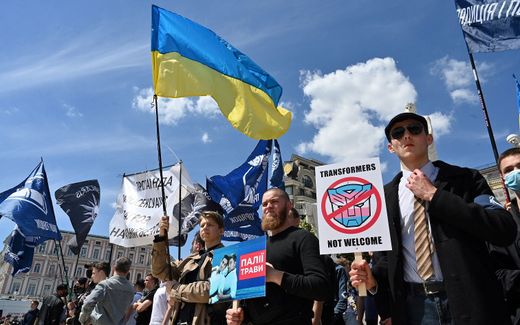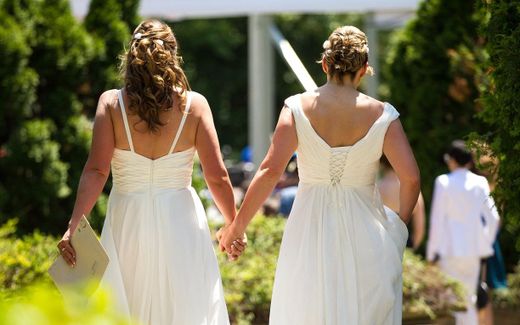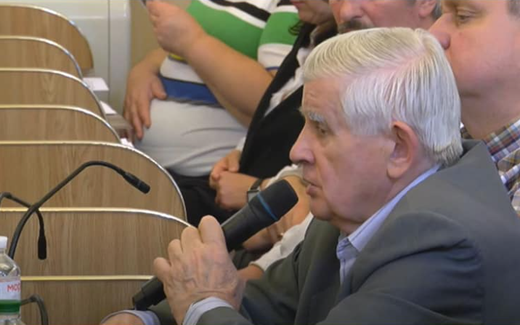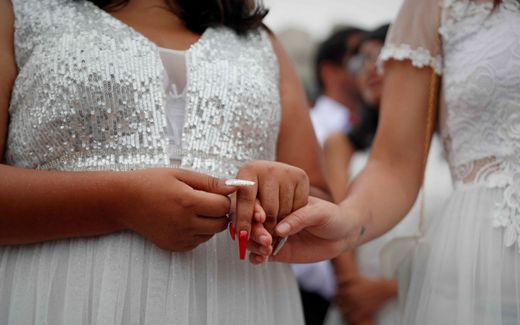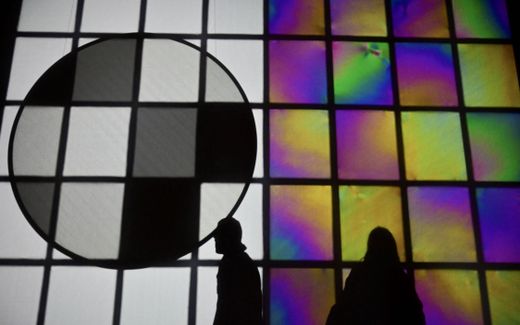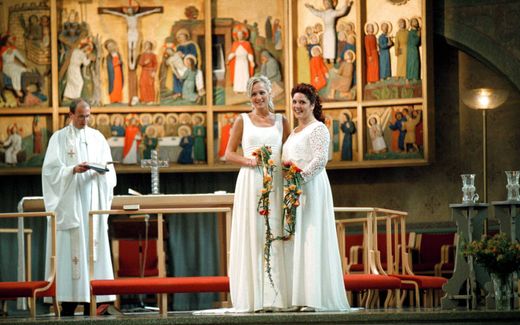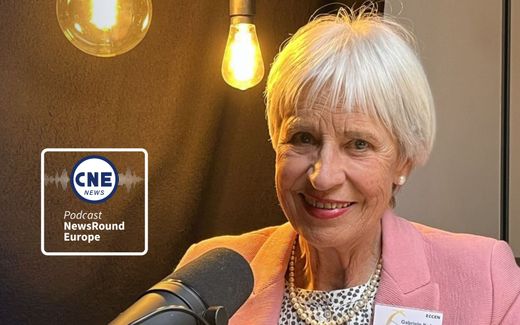Kyiv Pride was offensive, but Christians can take away something from it
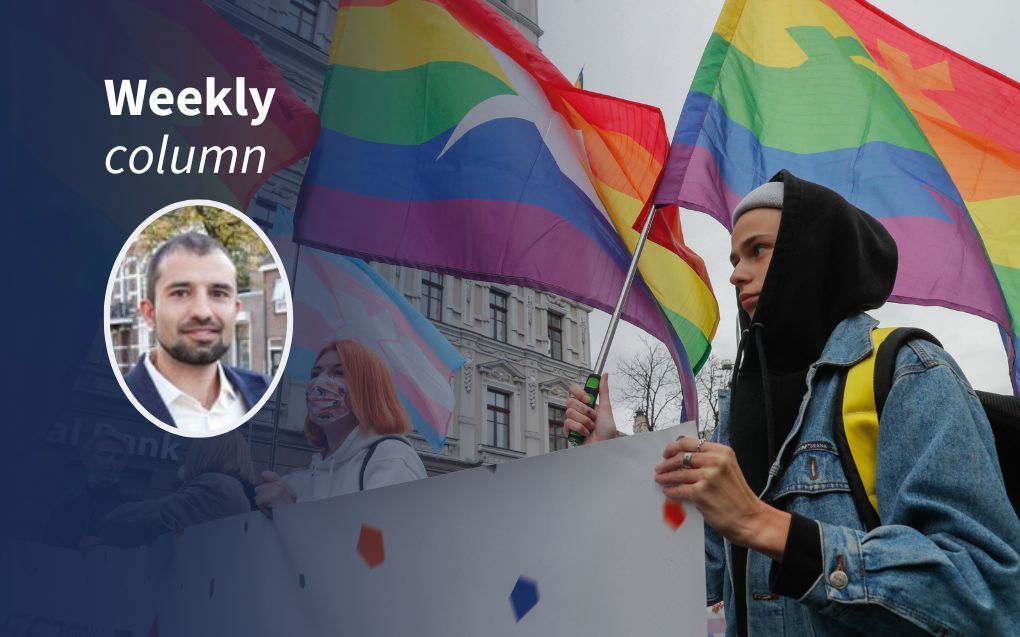
Ukraine's LGBT community in Kyiv participate in the city's March of Equality parade in 2021. Photo EPA, Sergey Dolzhenko, canva.com
Eastern Europe
At the end of April 2025, the queer film festival "Sunny Bunny" took place in Kyiv. It sparked significant public controversy due to it taking place during the Easter holidays.
Stay up to date with Christian news in Europe? Sign up for CNE's newsletter
The festival organisers stated that the dates had been agreed upon in advance according to the international festival calendar and that the overlap with Easter was purely coincidental. They also emphasised that the festival's goal was to amplify the voices of the queer community as well as promote equality and respect in society.
Unfortunately, such "coincidences" in scheduling are not uncommon. Last year, the organisers of the “Queer Propaganda Fest” were forced by public pressure to reschedule the event. It was initially planned for the Holodomor Remembrance Days (November 23–24). At the time, they claimed they were unaware of the memorial dates.
However, for many believers, this year's festival during the Easter season also proved deeply offensive. After all, this is the period when Christians around the world commemorate the suffering and death of the Lord Jesus Christ for the sins of humanity.
The Christian community, who viewed it as a show of disrespect toward religious sentiments, was outraged. Public anger especially arose around the festival's "children's section" called "Kvirchyk"
Backlash
The reactions came not only from religious leaders but also from several well-known politicians and public figures.
Some described the festival as a "provocation against faith," calling for respect toward Christian holidays. Others urged caution when selecting event dates, emphasising the need for interfaith sensitivity in the public sphere and calling for the festival's cancellation.
This reaction highlights that even within a secular environment, there remains an awareness of boundaries that should not be crossed in a democratic society that values religious freedom.
In response, the right-wing political youth organisation "Prava Molod" announced a protest against the festival, viewing it as a "profanation of all that is sacred" and "ideological poison". Although "Prava Molod" (Right Youth) is not a religious organisation, its activities often intersect with religious themes. It participates in initiatives to defend traditional Christian values such as family, morality, and spirituality. Moreover, its members frequently collaborate with representatives of various Christian denominations.
Outrage
During the protest near the "Zhovten" cinema, clashes broke out between demonstrators and the police, resulting in the detention of all protesters for identity checks. The detention of the protesters sparked public outrage, especially among Christian activists who believed their rights to freedom of expression had been violated. They also reported that the detentions were carried out without proper legal grounds, and some activists suffered physical violence at the hands of law enforcement.
Is this the way Christians should respond? From a Christian perspective, such a situation naturally raises concerns about preserving Christian values within our society. Hosting events that openly contradict Biblical principles —especially during sacred days— can be seen as a challenge to traditional moral norms. Moreover, the authorities' reaction to peaceful protests shows a potential restriction of freedom of religion and freedom of expression, both of which are fundamental rights in any democratic society.
So, how should Christians view these matters? First, with compassion and truth. We are not called to show hatred or disdain toward people, regardless of their preferences or views, because all of us are sinners.
However, we are commanded to speak the truth in love (Ephesians 4:15) without agreeing to what the Bible calls sin. We cannot remain silent when the very meaning of Christ's sacrifice on Golgotha is distorted — a sacrifice made for the salvation of sinners through repentance, not for their affirmation of sin.
Shine the light
Second, Christians should remember that the Reformed tradition generally teaches that both the Church and the secular world are under God's sovereignty.
Therefore, although we should not harbour unrealistic expectations that political power or cultural spheres will fully align with God's standards, we are nevertheless called to bear witness — through preaching, presence, public testimony, and prayer. Christians are to form the conscience of society, even if society refuses to listen. Christ told us His Kingdom is not of this world (John 18:36), yet this world is still His creation and His field of mission, as He claimed, "All authority in heaven and on earth has been given to me" (Matthew 28:18).
Finally, it is crucial to emphasise that in this particular issue, our task is not to "stop the darkness" but rather to shine the light. The Church must respond to such challenges not merely with outrage but with piety, pure worship, the faithful raising of children in the faith, prayer for those in authority, and sacrificial love for our neighbour — including those currently trapped in false identities. Christ conquers not through political pressure, but through His Word and Spirit, which transform hearts.
Thus, Christians should not only see the hosting of an LGBT festival on Good Friday as an example of cultural insensitivity or secularism. Instead, it serves as a litmus test for the Church: Are we ready to stand firm, gently but uncompromisingly, in the truth of the Gospel? Will we fear the wrath of man more than the wrath of God? Will we learn to respond not merely with protest but with a prophetic witness — one that points not against people but toward Christ, who is the only hope for each one of us?
Related Articles


